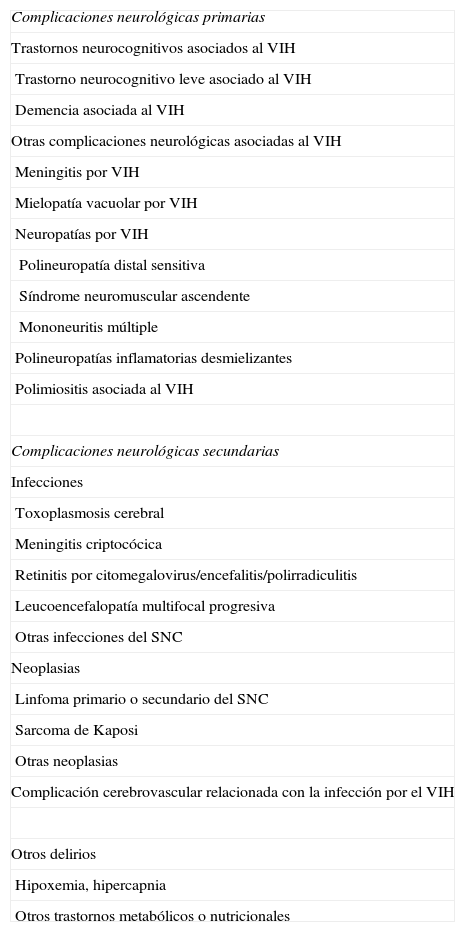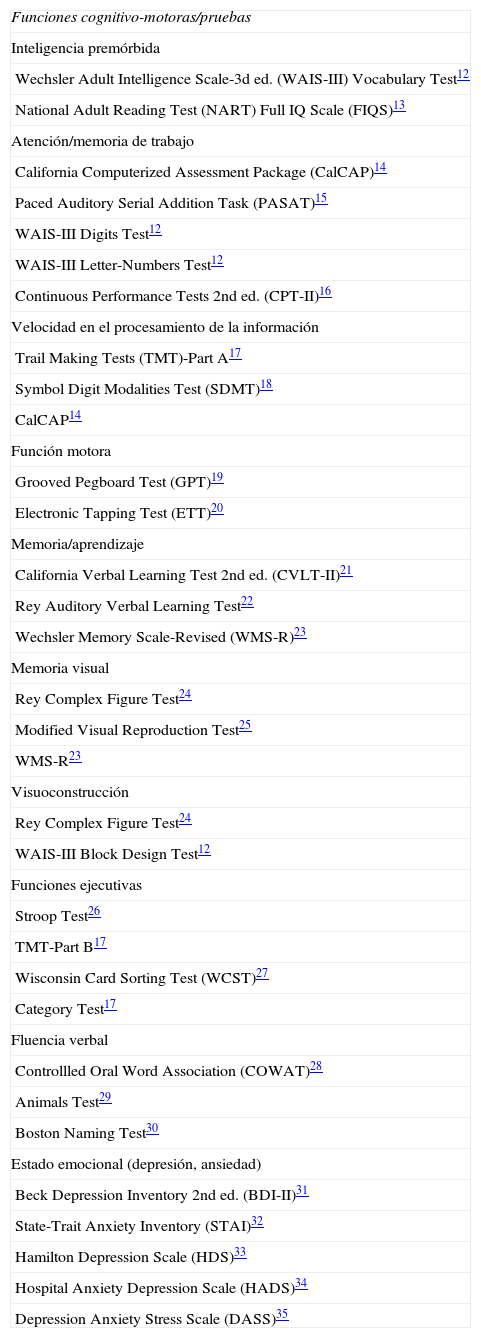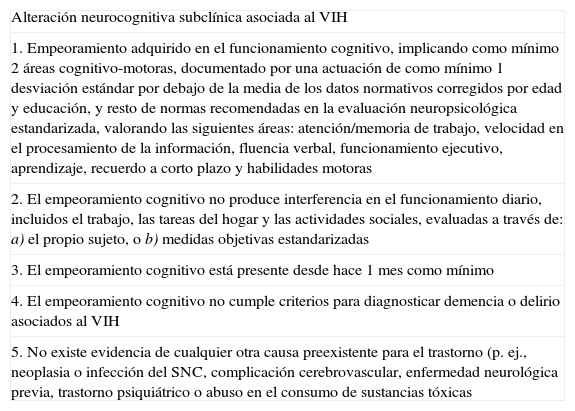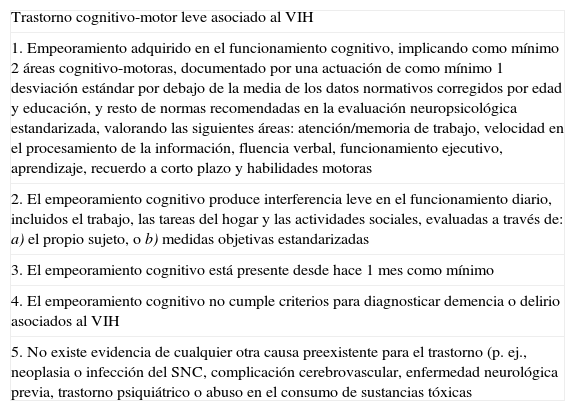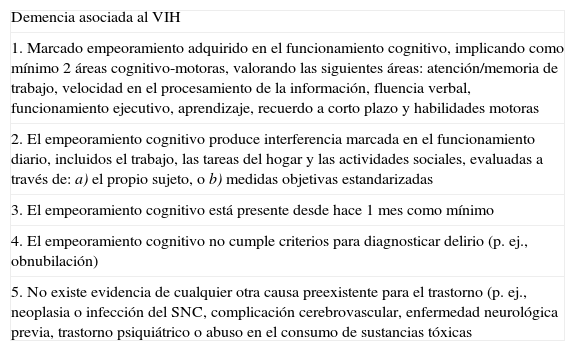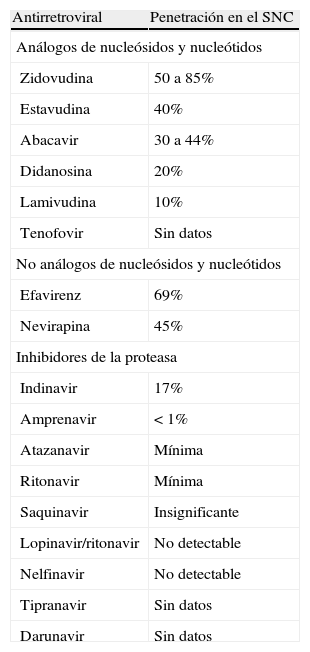La afectación del funcionamiento neurocognitivo es una de las complicaciones más frecuentes en la infección por el virus de la inmunodeficiencia humana (VIH) en la actualidad. Los tratamientos antirretrovirales de gran actividad (TARGA [highly active antiretroviral therapy, o HAART]) han demostrado un beneficio asociado a su uso, pero existen diferentes trabajos que muestran cómo ese beneficio se observa en una baja proporción de personas que empiezan tratamiento. La forma más conocida de alteración neurocognitiva es la demencia asociada al VIH (HIV-associated dementia [HAD]). Sin embargo, también puede existir la alteración neurocognitiva subclínica (asymptomatic neurocognitive impairment [ANI]) o el trastorno cognitivo-motor leve (minor cognitive-motor disorder [MCMD]). Esta revisión describe esos trastornos asociados a la infección por el VIH, así como, por otro lado, también dedica una parte de discusión a posibles intervenciones centradas en la protección del funcionamiento neurocognitivo en las personas infectadas por el VIH.
Disruption of neurocognitive functioning is one of most frequent complications in patients with HIV infection nowadays. The Highly Active Antiretroviral Therapy (HAART) has demonstrated an improvement associated with its use, although there are different works that show this improvement is achieved in a low proportion of individuals who initiate therapy. The most known characterization of neurocognitive dysfunction is the HIV-associated Dementia (HAD), yet there may also exist the asymptomatic neurocognitive impairment (ANI) or the Minor Cognitive-Motor Disorder (MCMD). This review describes the disorders related to HIV infection, and comments on possible interventions focused on the protection of neurocognitive functioning in HIV-infected people.
Artículo
Comprando el artículo el PDF del mismo podrá ser descargado
Precio 19,34 €
Comprar ahora






